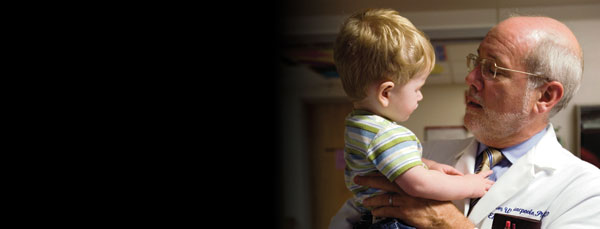Extracts

$26 Million Grant Will Speed New Therapies
Czerne M. Reid
Eighteen years of working in the fine-dining industry have given Jennifer Stamps an appreciation for good food and drink. She has worked alongside chefs whose memories of smell and taste are so refined they can combine flavors in their minds and know how the end product will taste. And all the while, she was unwittingly preparing for her current doctoral work.
“In fine dining, people have lots of access to new flavors. It was always interesting to interact with people and see what they chose to eat,” said Stamps who grew up in Green Cove Springs.
A third-year student in UF’s Interdisciplinary Program in Biomedical Sciences, Stamps is on a quest to find out how damage to people’s senses of smell and taste can decrease their pleasure in life and, in turn, their health.
Her work involves studying individuals with disorders such as Alzheimer’s and Parkinson’s who become malnourished as a result of damage to nerves that govern smell and taste. She hopes her work eventually will lead to new ways to test clinically how much pleasure people get from life, and therapies to enhance that pleasure by increasing their ability to sense flavors.
Stamps’ research is being supported in part by a fellowship from UF’s Clinical and Translational Science Institute (CTSI), which gives her practical training in how to turn laboratory discoveries into clinical applications.
“It’s a lot of hands-on training on how to actually do clinical research,” she said.
The CTSI is a partnership of several entities both within the university and in the wider community. Its fellowships provide formal training in areas such as biostatistics, manuscript writing for human and clinical studies, ethical conduct of research and clinical research practice.
“We think that these programs will provide fellows with a background that they otherwise don’t have in conducting clinical research,” said Dr. Marian Limacher, director of the CTSI’s training and professional development program. “We are hoping that this level of training will prepare the workforce to design and accomplish the research that will improve health over the next decades.”
That is also the broader goal of the institute, which in July was awarded nearly $26 million over five years by the National Institutes of Health to speed the transformation of scientific discoveries into medical advances for patients.
In winning the competitive NIH Clinical and Translational Science Award (CTSA), UF joined a prestigious national consortium of medical research institutions, whose membership will be capped at 60 by 2012. To date, UF is the only university in Florida to get the award, which is geared toward accelerating scientific discovery, enhancing medical care, producing highly skilled scientists and physicians and fostering partnerships with industry.
The grant, administered through NIH’s National Center for Research Resources, will support multidisciplinary research in a wide range of fields such as biomedical informatics, gene therapy, aging, nanotechnology and infectious diseases.
Institutions that receive CTSAs are poised to become much more competitive than others by offering stronger research programs in addition to basic medical training, securing more NIH funding and attracting and retaining skilled faculty.
And the community benefits — every $5 million in annual research funding leads to about 100 new jobs and $20 million in incremental business activity, according to estimates from the nonprofit Families USA organization.
“Lots of things can happen with this grant that might not have happened — or happened as well — without it,” said Dr. Peter Stacpoole, director of UF’s CTSI and the grant’s principal investigator.
The CTSI also is supported by $23 million from the UF Office of Research and $70 million in commitments from the College of Medicine.
“This award is an endorsement of UF’s leading-edge research efforts and its contributions to health-related fields,” said Win Phillips, UF’s vice president for research. “The strong research efforts of UF faculty will provide the foundation for enhanced translational and bench-to-bedside research leading to contributions to health care that is the focus of this highly competitive program.”
The impact of the resulting discoveries will extend beyond academia to industry, government and the nation. In addition, discoveries that are developed commercially can generate royalty streams for the university.
“By attracting external funding, whether from federal agencies such as NIH or CDC, or from foundations or industry, new dollars come into Florida from outside the state — this leads to new jobs and a ripple effect in the local economy,” said Dr. David Guzick, UF’s senior vice president for health affairs and president of the UF&Shands Health System.
The partnership comprises UF’s Gainesville and Jacksonville campuses, including the colleges of Medicine, Dentistry, Nursing, Pharmacy, Public Health and Health Professions, Veterinary Medicine, Fine Arts, Journalism and Communications, Liberal Arts and Sciences, Engineering, Health and Human Performance and Agriculture and Life Sciences. Also participating are the Institute of Food and Agricultural Sciences, Shands HealthCare and the North Florida/South Georgia Veterans Health System.
“It’s a truly fundamental – from the roots up – transformation of how we do research and training,” Stacpoole said.